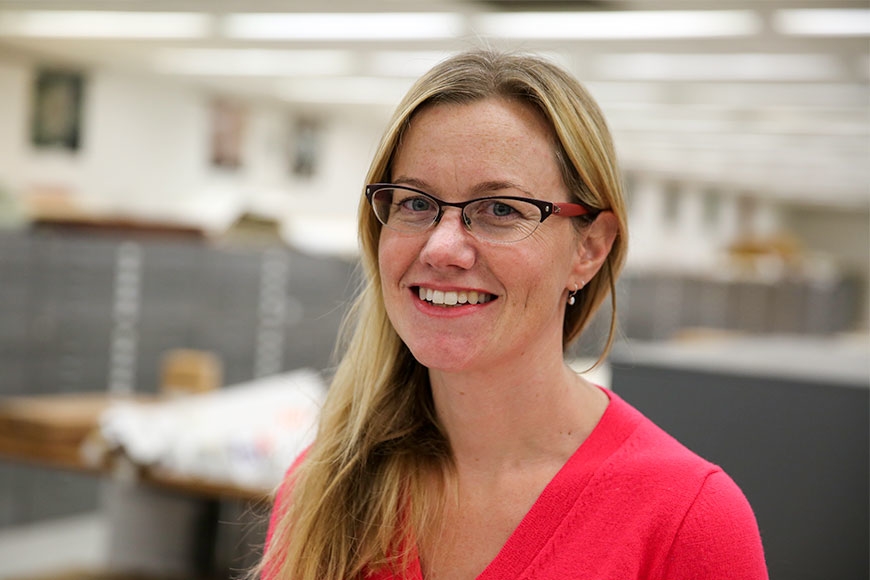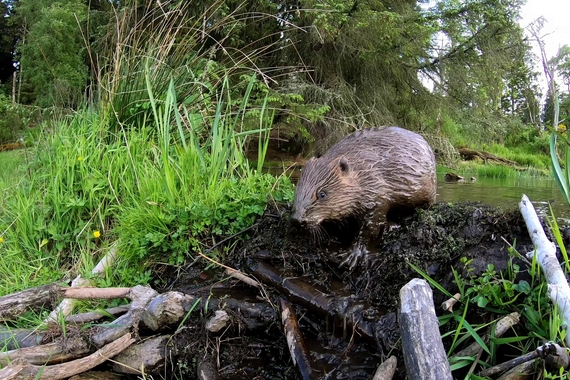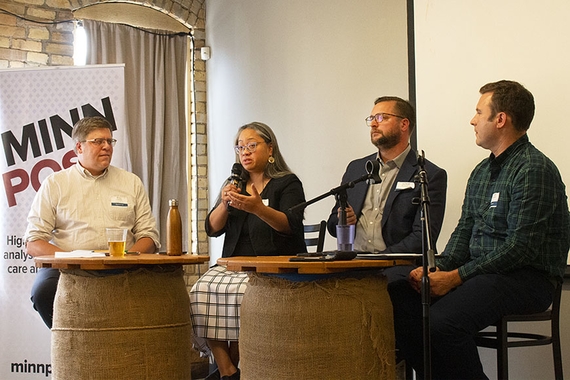Motherhood in a Changing Climate
As a first-generation undergraduate student at UC Berkeley majoring in theoretical math and French, Kathryn Grace gave little thought to geography and what it entailed. However, through years of study and personal experiences (including becoming a student parent as a fourth-year undergraduate), Grace began to see how she could actually merge her academic interests with her personal ones in the field of geography. Now an experienced health geographer and associate professor at the University of Minnesota, Grace’s research is impacting the lives of thousands across the globe.
Student Parenthood
While pursuing her undergraduate degree, Grace gave birth to her first daughter. Living away from family, Grace faced new challenges being both a mother and a student in a place that did not provide much aid to young parents. When her baby was born she was encouraged and expected to take ample time off, but refusing to fall behind, she simply brought her baby to classes with her.
Grace met many other student parents like her on campus and became actively involved in the University’s established on-campus student parent group. It gave her a community and the support that she needed, as they figured out what low-income, student parenthood looked like together. This experience opened Grace’s eyes to how challenging it is to have a child as a student, and doubly how challenging it is when consideration is not given to the needs of students with children.
Realizing that her personal experiences were impactful and important, Grace felt the urge to study women’s health, though she was still interested in mathematics. Through graduate school experiences at Tulane’s School of Public Health and University of California, Santa Barbara, Grace found her way to the field of health geography, where she could better address women’s health concerns while maintaining a statistical thinking lens.
Research in Practice
Grace’s many years of lived and learned knowledge led her to the Department of Geography, Environment & Society (GES) at the University of Minnesota in 2016. Here, she conducts quantitative research on the way that climate events and heat affect human health, particularly focusing on women and their children through pregnancy experiences before, during, and post birth. Although different grants and organizations have led her to all parts of the world for this research, she is currently focused on rural communities in Africa, particularly West Africa, where her knowledge of French also comes in handy.
Grace currently spends most of her time matching people’s experiences with temperature conditions. She focuses on quantitative and technical aspects of the data, yet works to consider each person’s situation individually. “I try to think about what it would be like to be a person who lives in rural Mali, for example, and what is going to be important in terms of their temperature exposure,” explains Grace. She considers factors of whether a person has an air conditioner or fan, whether they have a partner who can work while they rest in the shade, or if they need to work to survive. With input from researchers and residents in the communities of focus, Grace observes the complicated cultural and social processes that affect a mother’s experience and finds ways to measure them in a quantitatively and culturally relevant way.
As the topic of climate change is so prominent today, Grace looks to shed light on how it impacts women in particular during their primary reproductive years. “We need to move away from just seeing the woman as something to produce [children] and [toward seeing them as] actually having a body, feelings, emotions, and complex experiences,” Grace says. Climate and weather conditions impact aspects of women’s reproductive health from the pre-pregnancy period to many years after a pregnancy occurs. While there is much research on children’s health, special attention must be given to the health of the woman, beyond her ability to produce a live birth.
Grace collaborates with numerous researchers across the country and the globe. She feels fortunate to collaborate with a team of dynamic and engaged scholars including undergraduates, graduates, post-docs, researchers, and faculty within GES, the Minnesota Population Center, the School of Public Health, and CFANS to explore this work with her. This past year, she received the College of Liberal Arts’ Scholar of the College Award for her groundbreaking quantitative work on global women’s health.
A Blend of Science and Humanity
As a first-generation student with a child herself, Grace understands that academic and personal experiences look different for everyone. Her goal is to celebrate this in her classroom and create a collaborative space, encouraging students in her classes to discuss their own lived experiences and ideas to solve problems. “We try to talk about things in the way that people really experience them, and we try to develop a better understanding of things that we don't understand,” explains Grace. “We look at the way that certain policies can positively influence some people but maybe cause problems for other people.”
Above all, Grace pushes her students to observe medical and health ideas through a social science lens. “In my class, it’s all about how we contribute to people’s health outcomes. The way we isolate certain people, or believe certain people, or discredit still others, and how all of these contribute to individual health outcomes.” Grace strives to blend mathematical thinking with social science dialogue so that, no matter one’s background, they feel that they have something important to bring to the health and climate discussion.
This story was written by an undergraduate student in CLA.



